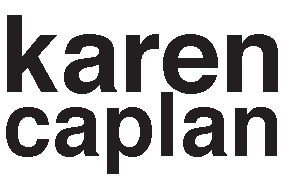Over the years, I have done my fair share of job interviews. From the most basic, entry level positions to the most senior executives, in both the profit and non-profit sectors.
And the bottom line is this: the better prepared you are for the interview, the better the result. The more time you devote up front, the better the long-term results will be.
How do you best prepare for an interview?
First – have you read the job description for the position? What are the key roles and responsibilities for why the position exists (not a listing of duties). How will position success be measured? Are there KPIs (Key performance indicators) or metrics that will demonstrate a person’s accomplishments (not just activities)?
Once you understand what the position is, why it exists and what success looks like, then you can start recruiting and reviewing resumes.
Speaking of resumes, how carefully do you review resumes? Do you notice typos or grammatical errors? Are there gaps in the persons’ work experience? Is it clear what the person was hired to do (which may not be evident from their title) and was that person successful in achieving that?
Many times, people list the names, titles, and phone numbers of personal or professional references. I am not a big fan of these, or letters of recommendation. Usually, the candidate will only list people who will give a positive review of themselves and in the case of a letter of recommendation, the candidate probably wrote it themselves and asked the person to sign it. No one will list a bad reference, will they? **I usually look up the person on LinkedIn and see if we have any connections in common. By doing a little digging on LinkedIn, I can usually find someone, or some company that we have in common, and I can find an authentic, real reference on the candidate that they did not provide.
One of my favorite interview techniques is the “Resume review interview”. When I was part of a group of people interviewing candidates, sometimes I took on the role of the first person to interview and did the resume review interview. It’s a bit tedious, but quite fruitful with the information I garnered.
I would start at the bottom of their resume and confirm the date and degree of their graduation from college or high school. Then, from the oldest position, I would ask them the same questions:
- “It says here that you worked from June 1990 – September 1994 for XYZ company in an “X position”. What were you hired to do in that position? What did you achieve in that position? Why did you leave that company/position?”
- If there was a gap between one position and the next, I would ask them “what did you do between October 1994 and your next position in 1995?” These questions make candidates squirm a bit, because you are like a detective, reviewing every detail, but what you uncover can be quite enlightening.
- I asked these questions for every position or company listed on their resume. The same questions. It kind of fatigues the candidates and usually gets them to lower their guard and disclose real information about them as a potential employee.
- And the final question would be, “You have applied for X position at our company – what appeals to you most about this position? Why do you think you will be successful here?”
So many times, when we are interviewing candidates for an open position, we are desperate. You know what I mean – you just want to fill the position, so you can get back to doing your job. Frankly, it’s that kind of attitude and approach which can result in poor hires, lots of extra time spent attempting to make that candidate fit your culture, perform in the job and in the end, you may decide it’s just not a match.
As the saying goes: Hire slowly, and fire fast.
Just this week, I spoke with an industry colleague who is unhappy in their new job. They’ve only been there 4 months and realized that they didn’t really understand the culture of the company and what the requirements of the position were. This person was looking for a job and this company offered them the highest salary of all the job offers they received. If the candidate really understood what THEY themselves were looking for in a position and came prepared to the interview to ask questions about the company, the position, their supervisor and the growth opportunities, instead of just trying to get hired, they would not have called me trying to figure out how to unwind this bad decision.
Remember, focus precedes success. Invest time up front, before you start the interview process, and you will likely have a smoother process with better results.
Onward and upward,






